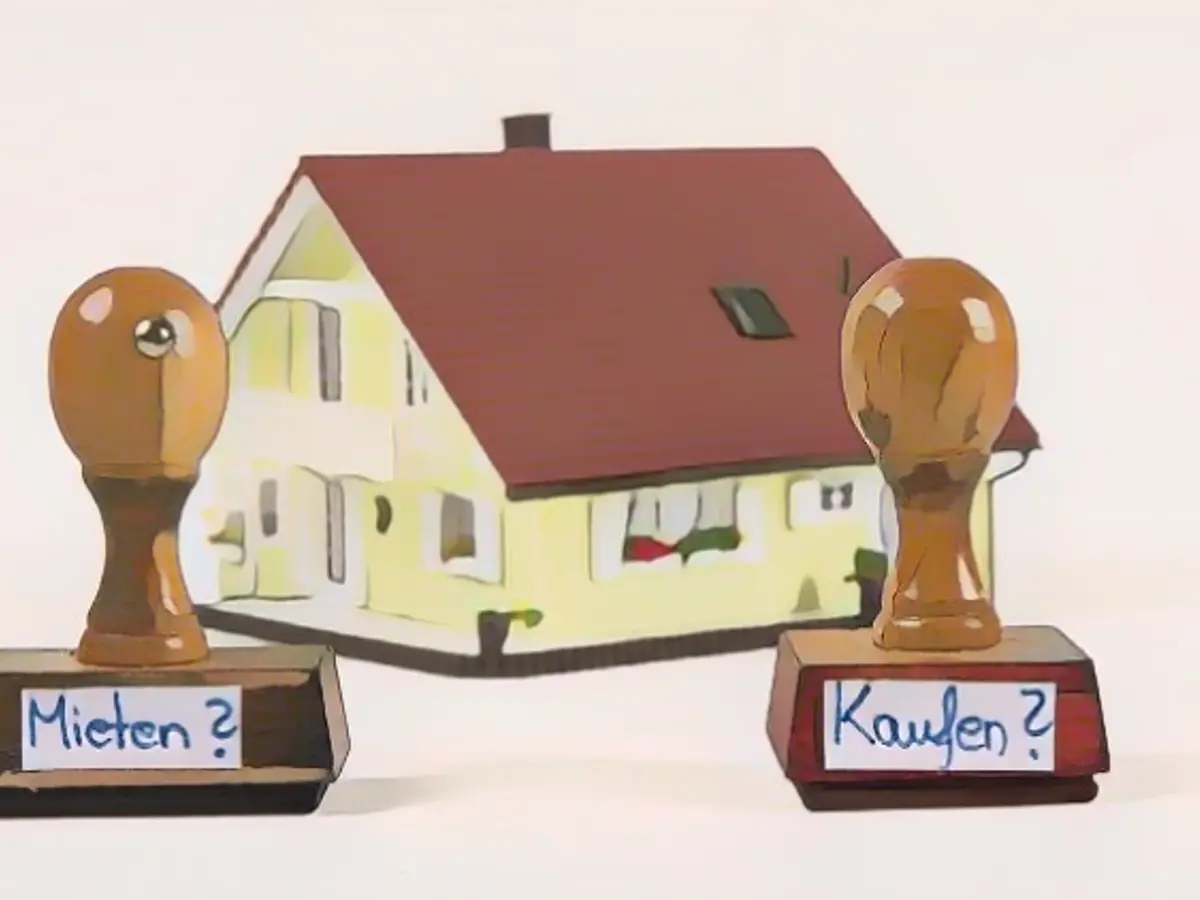Buying real estate significantly more expensive than renting
Word has got around that affordable housing is a scarce commodity in Germany. Accordingly, there is no good news from the real estate market - neither for potential buyers nor for tenants. The latter are struggling with record rents, while the former are finding it even more expensive to buy a house or apartment.
Despite falling purchase prices and rising rents, according to a study, buying a property does not currently pay off for the average household. It remains "significantly more expensive than renting in Germany", according to the study by credit insurer Allianz Trade. This would apply even if rents were raised by the statutory maximum limit of 20 percent based on the 2023 level. The difference between an average monthly credit burden and a monthly rent would then still amount to 381 euros.
"The fact is: despite lower prices, many people cannot afford to buy a house," said Jasmin Gröschl, Senior Economist at Allianz Trade. "Private 'house builders' will therefore not pull the construction industry out of the current low demand." Buying does not appear to be a realistic alternative due to the high interest rates on loans. A normalization is hardly in sight - "not even through simplified building permits". Only if, in addition to the rent increases, property prices were to fall by 20 percent compared to 2022 - and thus by a further ten percent compared to the current level - would buying a house be worthwhile compared to the return on investment. Alternatively, mortgage interest rates could also fall to 1.78 percent in addition to the rent increase to make a purchase worthwhile. Currently, however, building interest rates are around four percent.
Affordable housing has been in short supply for years
The experts do not expect the construction crisis to end any time soon. "Many construction projects are on hold due to higher interest rates and material costs - with visible consequences for project developers, construction companies and, above all, the housing market," said the CEO of Allianz Trade in Germany, Austria and Switzerland, Milo Bogaerts. An estimated 700,000 apartments will be lacking in 2023. "Affordable housing has been in short supply for years, and the current situation is likely to exacerbate this even further."
Inflation in particular has increased the pressure on the housing stock. Rents have risen to record levels throughout Germany this year - with real wages falling at the same time. At the same time, inflation and rising interest rates have abruptly put the brakes on new construction projects, as housing construction has become even more expensive as a result.
The result: in August, there were almost a third fewer building permits for apartments than a year earlier. This is causing problems for more and more companies in the construction and real estate industries. Both sectors accounted for around a fifth of insolvencies in Germany between January and August.
"The order situation is hitting many project developers and construction companies hard, as they have had virtually no new orders for months," said Bogaerts. "As subcontractors, the many medium-sized companies in particular are often in a kind of sandwich position with little pricing power vis-à-vis large clients." This makes them particularly vulnerable in the event of a deterioration in the order situation and the economy.
- In response to the high cost of real estate loans, many potential homebuyers are seeking advice from financial advisors to determine if purchasing a property is still a viable option.
- The real estate prices of condominiums have risen significantly, making it difficult for tenants to transition into becoming homeowners.
- The construction industry has been struggling due to the scarcity of real estate loans and the high interest rates, leading to fewer building permits for apartments.
- Landlords are increasing rents to cover expenses, including construction costs, which have skyrocketed due to inflation, further exacerbating the affordability issue for tenants.
- With the construction industry stagnating and interest rates not expected to decrease anytime soon, some experts are suggesting that renters may continue to outpace homeowners in terms of financial stability and flexibility for the foreseeable future.
Source: www.ntv.de







